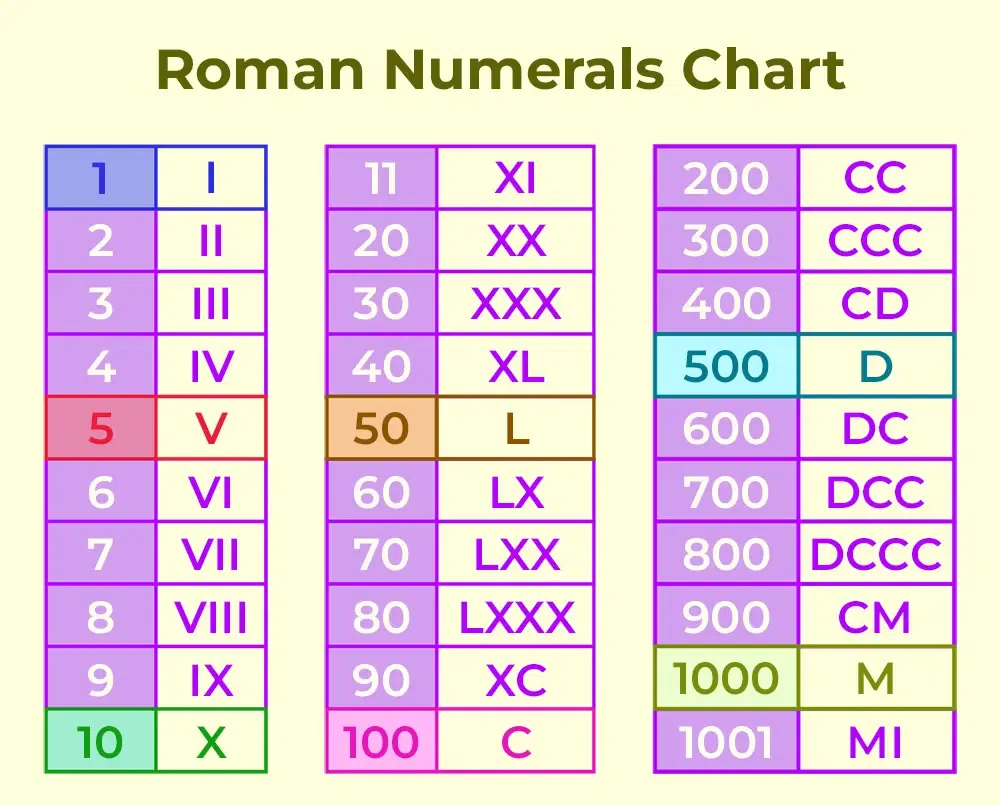10 Ft Box Trucks For Sale: Your Comprehensive Buying Guide pickup.truckstrend.com
In the vast landscape of commercial vehicles, the 10 ft box truck occupies a unique and highly valuable niche. Often overlooked in favor of their larger counterparts, these compact workhorses are the unsung heroes of countless small businesses, independent contractors, and personal moving projects. A 10 ft box truck for sale isn’t just a vehicle; it’s a versatile solution for efficient transportation, offering the perfect blend of maneuverability, fuel efficiency, and ample cargo space for a surprising array of tasks. Whether you’re a burgeoning entrepreneur needing to deliver goods, a homeowner tackling a DIY move, or a service professional transporting tools, understanding the ins and outs of purchasing one of these nimble trucks is crucial. This comprehensive guide will navigate you through everything you need to know about finding, evaluating, and acquiring the perfect 10 ft box truck to meet your needs.
Why Choose a 10 Ft Box Truck? The Undeniable Advantages
10 Ft Box Trucks For Sale: Your Comprehensive Buying Guide
The appeal of a 10 ft box truck lies in its optimized design for specific applications where larger trucks are simply overkill or impractical. Here’s why it might be the ideal choice for you:
- Exceptional Maneuverability: With their shorter wheelbase and compact dimensions, 10 ft box trucks excel in urban environments. They are easier to navigate through tight city streets, crowded parking lots, and residential areas, making deliveries and pickups significantly less stressful than with a 16-foot or 26-foot truck.
- Fuel Efficiency: While not as fuel-efficient as a sedan, 10 ft box trucks generally offer better gas mileage than larger commercial trucks. This translates to lower operating costs, especially for businesses with frequent local routes.
- Lower Cost of Ownership: Beyond fuel, the overall cost of owning a 10 ft box truck—including insurance, maintenance, and initial purchase price—is typically lower than for bigger models. Their simpler mechanics and lighter wear and tear contribute to reduced long-term expenses.
- Ideal for Specific Use Cases:
- Apartment/Small Home Moves: Perfect for moving a 1-2 bedroom apartment or a small house, accommodating furniture, boxes, and appliances with ease.
- Last-Mile Delivery: Excellent for businesses specializing in local deliveries, such as furniture stores, appliance retailers, or e-commerce operations.
- Small Business Logistics: Ideal for transporting inventory between warehouses and retail locations, catering equipment, or event supplies.
- Service Professionals: Plumbers, electricians, landscapers, and contractors can efficiently transport tools, materials, and equipment to job sites.
- Personal Projects: Hauling large items from hardware stores, transporting hobby materials, or assisting friends with moving.

- Ease of Driving: Most 10 ft box trucks do not require a Commercial Driver’s License (CDL) to operate, making them accessible to a wider range of drivers. Their car-like handling (compared to larger trucks) makes the transition for new drivers much smoother.

Key Features and Specifications to Look For
When exploring 10 ft box trucks for sale, understanding the specifications is paramount. The "10 ft" typically refers to the interior length of the cargo box, but other dimensions and features are equally important:
- Interior Dimensions: While the length is 10 feet, pay attention to the interior width and height. Standard dimensions often include 6-7 feet in width and 6-7 feet in height, providing ample cubic feet for various loads.
- Payload Capacity: This is the maximum weight the truck can safely carry, including cargo, occupants, and fuel. For 10 ft box trucks, payload capacities typically range from 2,500 to 4,000 pounds. Always ensure your typical load is well within this limit to prevent damage and ensure safety.
- Gross Vehicle Weight Rating (GVWR): This is the maximum operating weight of the truck as determined by the manufacturer, including the vehicle itself, its maximum load capacity, and passengers. Most 10 ft box trucks have a GVWR under 10,000 lbs, keeping them out of CDL territory.
- Engine Type: While larger box trucks often feature diesel engines, 10 ft models are almost exclusively powered by gasoline engines. Consider the engine size (e.g., V6 or V8) for adequate power, especially if you anticipate carrying heavier loads or driving on inclines.
- Transmission: Most modern 10 ft box trucks come with automatic transmissions, making them easy to drive. Manual transmissions are less common but can offer better fuel economy for experienced drivers.
- Rear Door Type:
- Roll-up Doors: Common for quick access and when space behind the truck is limited. They offer security but can slightly reduce the effective height of the opening.
- Swing Doors (Barn Doors): Provide a full-width and full-height opening, ideal for loading oversized items. They require more space behind the truck to open fully.
- Ramp or Liftgate: A crucial feature for easier loading and unloading. Many 10 ft box trucks come with a pull-out ramp. For heavier items, a hydraulic liftgate, though less common on this size, can be a game-changer for efficiency and safety.
- Condition: Decide between new and used. New trucks offer warranties and the latest features but come at a higher price. Used trucks are more budget-friendly but require thorough inspection.

Where to Find 10 Ft Box Trucks For Sale
The market for 10 ft box trucks is diverse, offering several avenues for potential buyers:
- Commercial Vehicle Dealerships: These dealerships specialize in trucks and vans and often have a selection of new and used 10 ft box trucks from various manufacturers (e.g., Ford Transit, Chevy Express, Ram ProMaster, Isuzu NPR). They offer financing options and sometimes warranties.
- Online Marketplaces:
- Dedicated Commercial Truck Sites: Websites like TruckPaper.com, CommercialTruckTrader.com, and MyLittleSalesman.com are excellent resources for finding both new and used trucks from dealers and private sellers nationwide.
- General Online Marketplaces: eBay Motors, Craigslist, and Facebook Marketplace can yield local private sales or smaller dealerships. Be cautious and verify seller credibility.
- Rental Company Sales: Major rental companies like U-Haul, Penske, Ryder, and Budget regularly sell off portions of their fleet. These trucks are often well-maintained, have detailed service records, and are sold at competitive prices. They may have high mileage but are generally reliable.
- Auctions: Government surplus auctions, commercial vehicle auctions, and police impound auctions can sometimes offer great deals, but they often come with a "buyer beware" caveat, as vehicles are sold "as-is" with limited inspection opportunities.
- Private Sellers: Check local classifieds or word-of-mouth. Buying from a private seller can sometimes lead to lower prices but requires a more diligent inspection process.
The Buying Process: New vs. Used and Essential Checks
The decision between a new and used 10 ft box truck significantly impacts your buying process.
Buying New:
- Pros: Full manufacturer warranty, latest features and technology, often better financing rates, no immediate maintenance concerns, customizable options.
- Cons: Higher upfront cost, significant depreciation in the first few years.
Buying Used:
- Pros: Significantly lower purchase price, less depreciation, wider selection of makes and models, potential for immediate availability.
- Cons: No warranty (or limited), potential for hidden mechanical issues, higher mileage, may require immediate maintenance.
Essential Inspection Checklist for Used Trucks:
If you’re considering a used 10 ft box truck, a thorough inspection is non-negotiable.
- Engine: Check for leaks, strange noises, excessive smoke from the exhaust, and proper fluid levels. Look for signs of recent major repairs.
- Transmission: Test drive to ensure smooth shifting (no jerking, slipping, or grinding). Check transmission fluid condition.
- Brakes: Test stopping power and listen for squealing or grinding. Inspect pads and rotors.
- Tires: Check tread depth, uneven wear (indicates alignment issues), and sidewall condition.
- Suspension: Look for sagging, broken springs, or excessive bouncing.
- Frame and Body: Inspect for rust, dents, structural damage, or signs of previous accidents (misaligned panels, inconsistent paint). Pay attention to the box interior for damage, leaks, or floor integrity.
- Electrical System: Test all lights (headlights, tail lights, brake lights, turn signals), wipers, horn, radio, and interior electronics.
- Fluids: Check oil, coolant, brake fluid, and power steering fluid for proper levels and color.
- Test Drive: Drive the truck at various speeds, including highway speeds if possible. Listen for unusual noises, feel for vibrations, and assess steering responsiveness.
- Professional Inspection: Highly recommended. Hire an independent mechanic specializing in commercial vehicles to perform a pre-purchase inspection. This small investment can save you thousands in future repairs.
Paperwork and Legalities:
Ensure you receive a clear title, a bill of sale, and all necessary service records. Understand the registration requirements in your state and secure appropriate commercial vehicle insurance before driving the truck off the lot.
Financing and Budgeting Your Purchase
Purchasing a 10 ft box truck involves more than just the sticker price. A comprehensive budget should include:
- Purchase Price: The agreed-upon cost of the truck.
- Sales Tax: Varies by state.
- Registration and Licensing Fees: Annual costs.
- Insurance: Commercial vehicle insurance can be more expensive than personal auto insurance. Factors include your driving record, the truck’s value, and its intended use.
- Fuel Costs: Estimate based on your expected mileage and the truck’s fuel efficiency.
- Maintenance and Repairs: Budget for routine service (oil changes, tire rotations) and potential unexpected repairs. Used trucks will likely require more in this category.
- Upgrades/Accessories: Ramps, shelving, tie-downs, security systems, etc.
Financing Options:
- Bank Loans: Traditional banks and credit unions offer commercial vehicle loans.
- Dealership Financing: Many dealerships have relationships with lenders and can offer financing packages.
- Specialized Commercial Lenders: Companies that focus specifically on financing commercial vehicles may have more flexible terms for businesses.
- Leasing: An alternative to buying, leasing can offer lower monthly payments and tax advantages for businesses, but you don’t own the asset at the end of the term.
Prepare your financial documents, including business plans (if applicable), credit history, and income statements, to streamline the financing process.
Tips for Maintaining Your 10 Ft Box Truck
Once you’ve acquired your 10 ft box truck, proper maintenance is key to maximizing its lifespan and ensuring reliable operation.
- Follow Manufacturer’s Schedule: Adhere to the recommended maintenance intervals for oil changes, fluid checks, filter replacements, and tune-ups.
- Regular Inspections: Beyond scheduled maintenance, routinely check tires (pressure and tread), lights, brakes, and fluid levels before each use.
- Keep it Clean: Regularly wash the exterior to prevent rust, and keep the cargo area clean to prevent odors and damage to the interior.
- Address Issues Promptly: Don’t ignore warning lights, strange noises, or performance issues. Addressing minor problems early can prevent them from escalating into costly major repairs.
- Professional Servicing: For complex issues or major maintenance, rely on certified mechanics experienced with commercial vehicles.
Price Table: Sample Pricing for 10 Ft Box Trucks
Please note: Prices for 10 ft box trucks vary significantly based on make, model, year, mileage, condition, features (e.g., ramp vs. liftgate), and regional market demand. The table below provides estimated ranges for different scenarios.
| Condition | Year Range | Make/Model Example | Estimated Price Range (USD) | Key Features/Notes |
|---|---|---|---|---|
| New | 2023-2024 | Ford Transit, Ram ProMaster | $45,000 – $65,000+ | Full warranty, latest features, customizable options. |
| Used (Excellent) | 2019-2022 | Isuzu NPR, Chevy Express | $30,000 – $45,000 | Low mileage, well-maintained, potentially certified. |
| Used (Good) | 2015-2018 | U-Haul/Penske Fleet, Ford E-Series | $18,000 – $28,000 | Medium mileage, good condition, minor wear. |
| Used (Fair) | 2010-2014 | Older Models | $10,000 – $17,000 | Higher mileage, noticeable wear, may need repairs. |
| Used (As-Is/Salvage) | 2005-2009 | Various older models | $5,000 – $9,000 | High mileage, significant wear, potential major issues. |
Disclaimer: These are general estimates. Always conduct thorough research and obtain specific quotes for the trucks you are considering.
Frequently Asked Questions (FAQ) About 10 Ft Box Trucks
Q1: What can a 10 ft box truck typically hold?
A1: A 10 ft box truck is ideal for moving a 1-2 bedroom apartment, including items like a queen-size bed, sofa, dresser, refrigerator, and several boxes. For businesses, it can accommodate a significant amount of inventory, tools, or equipment, typically up to 2,500-4,000 pounds.
Q2: Do I need a CDL (Commercial Driver’s License) to drive a 10 ft box truck?
A2: In most cases, no. 10 ft box trucks typically have a Gross Vehicle Weight Rating (GVWR) under 10,001 pounds, which is below the threshold for requiring a CDL in the United States. A standard Class D driver’s license is usually sufficient. Always verify local regulations.
Q3: What’s the average fuel economy for a 10 ft box truck?
A3: Fuel economy varies significantly based on the make, model, engine size, load, driving habits, and terrain. Generally, you can expect anywhere from 8 to 15 miles per gallon (MPG).
Q4: What is the typical lifespan of a 10 ft box truck?
A4: With proper maintenance, a 10 ft box truck can last a very long time. Many commercial vehicles, even rental fleet trucks, are designed to endure high mileage. It’s not uncommon to see these trucks exceed 200,000 to 300,000 miles.
Q5: Can I rent a 10 ft box truck before buying one?
A5: Absolutely! Renting from companies like U-Haul, Penske, Budget, or Ryder is an excellent way to test drive different models and get a feel for their size and handling before committing to a purchase.
Q6: What are common maintenance costs for a 10 ft box truck?
A6: Routine maintenance includes oil changes ($50-$150), tire rotations ($20-$50), and brake inspections ($50-$100). Larger costs can include tire replacement ($150-$300 per tire), brake pad and rotor replacement ($300-$800 per axle), and transmission service ($200-$500). Unexpected repairs can vary widely.
Q7: Is a 10 ft truck suitable for long-distance moves?
A7: While possible, a 10 ft truck is generally better suited for local or short-to-medium distance moves. For cross-country or very long-distance hauling, a larger box truck (16 ft or 26 ft) might be more comfortable and efficient due to more cargo space and potentially better highway performance with heavy loads.
Conclusion
The 10 ft box truck is a remarkably versatile and cost-effective solution for a wide range of transportation needs. Its compact size, combined with substantial cargo capacity, makes it an indispensable asset for urban deliveries, small business operations, and personal moving projects. By understanding the key features, knowing where to look for sales, meticulously evaluating your options (especially used models), and budgeting wisely, you can make an informed decision that perfectly aligns with your requirements. With diligent research and a commitment to proper maintenance, a 10 ft box truck can serve as a reliable workhorse for many years to come, proving that sometimes, the most effective solutions come in surprisingly compact packages.



